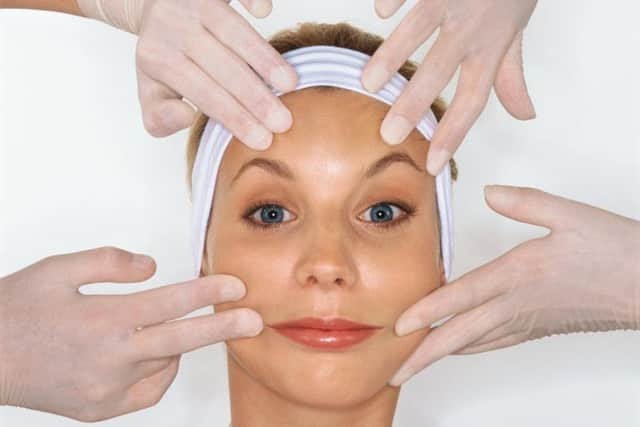Scottish Government adviser on plastic surgery warns “fly-in, fly-out” surgeons danger to patients
Speaking to reporters for the new BBC documentary Disclosure: When Cosmetic Surgery Goes Wrong, consultant plastic surgeon Ken Stewart says a certification scheme for cosmetic surgeons should be mandatory.
“The regulation in my view is such that people can still do inappropriate things in inappropriate environments, with inappropriately trained staff,” he said.
Mr Stewart is one of the few surgeons to be certified.
Advertisement
Hide AdAdvertisement
Hide Ad

He said existing regulation was not “robust” and leaves patients vulnerable.
The film investigates Transform, the leading High Street cosmetic surgery provider, which carries out thousands of operations each year.
The company uses doctors from abroad, who come to the UK to operate and then leave. This means surgeons are sometimes no longer in the country to treat their patients if complications occur, which can result in poor continuity of care and difficulties in securing compensation.
Transform said use of “world-class international surgical expertise” is “commonplace” across healthcare providers, including the NHS, and the firm took “absolute responsibility” for patients.
But the film, which airs tonight on BBC One Scotland, found patients have been left permanently scarred and unable to get compensation. Many have been forced to turn to the NHS for help.
Experts say patients can be left exposed because the UK and Scottish governments have failed to act on the key recommendations of two major reviews – despite the fact the first was published six years ago.
The 2013 Keogh Review concluded the regulation of cosmetic surgery was poor and warned vulnerable patients were not protected.
It recommended only certified surgeons should be allowed to carry out cosmetic procedures to protect patients from bad practices.
Advertisement
Hide AdAdvertisement
Hide AdThat never happened. Instead a voluntary register was introduced, but fewer than 30 surgeons have signed up to date.
The Royal College of Surgeons told the BBC a mandatory certification scheme would effectively end fly-in, fly-out surgery.
The Scottish Government told the BBC it would take additional steps to protect patients, including meeting with UK ministers and surgeons’ leaders.
Public health minister Joe Fitzpatrick said: “Some of this is devolved. Some is reserved.
“I would certainly be up for having that conversation to make sure patients are as safe as possible.”
The UK Government did not respond to allegations that it has failed to make certification mandatory. It said all doctors practising in the UK must be registered and have the correct insurance.
